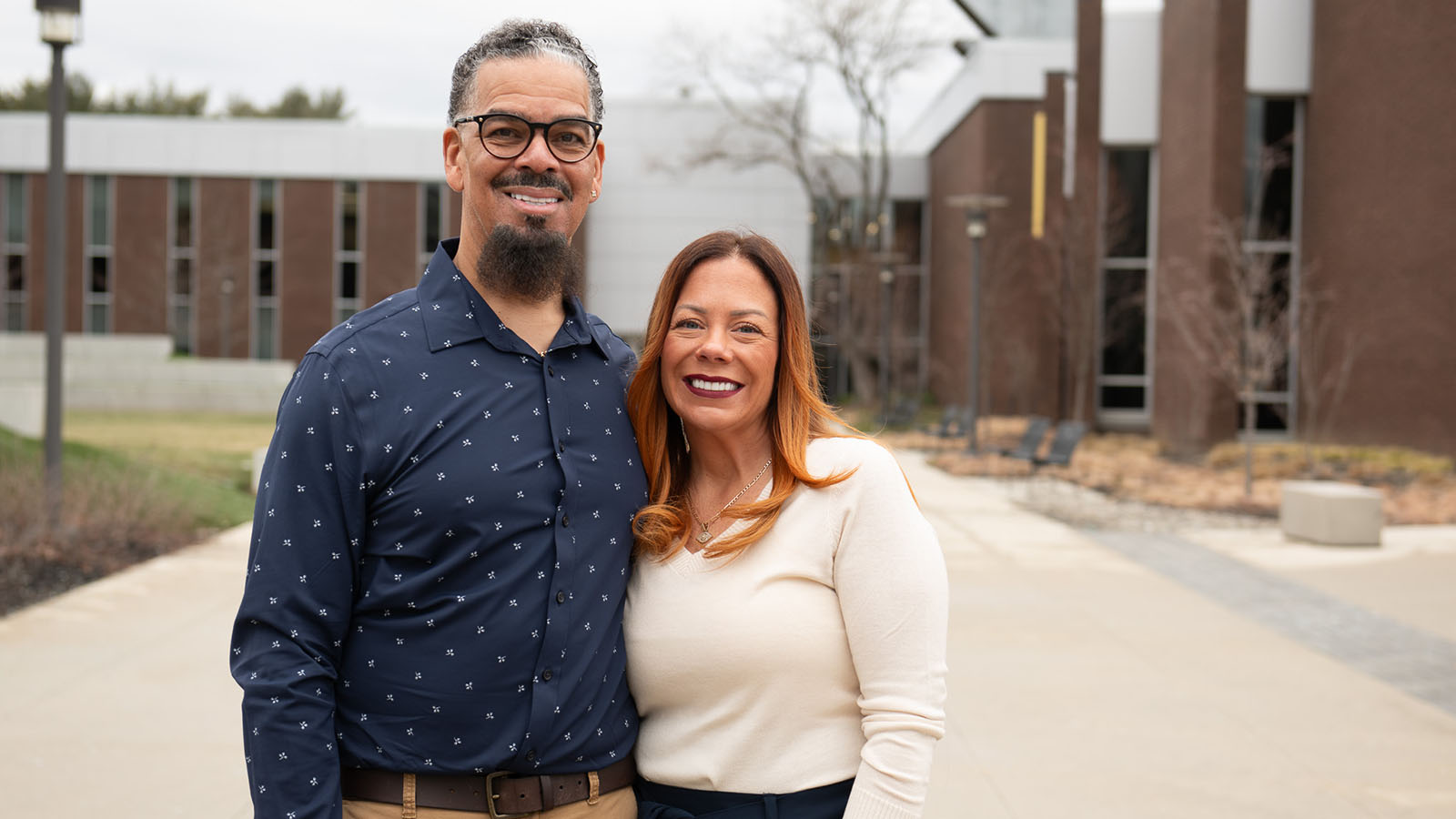6 Tips for Restoring Your Heart Rhythm
AFib is the most common type of abnormal heart rhythm. Virtua cardiologist Dr. Delcine Sood explains how medication and lifestyle changes, and procedures if needed, can help you manage AFib.
By Decline Sood, DO, FACC, Cardiologist - Virtua Cardiology
Atrial fibrillation (AFib) can be challenging, affecting your ability to do everyday activities, not to mention increasing your risk for blood clots, stroke, and heart failure. Using medication and lifestyle changes, and procedures if needed, we can get you back to where you want to be.
To manage your condition:
Take your medicines as prescribed. You may take different medications to treat individual segments of AFib. Anticoagulants thin your blood to reduce your risk for blood clots that could cause a stroke. Beta and calcium channel blockers are used to control your heart rate. Sodium and potassium channel blockers can regulate your heart rhythm.
Be sure to share with your doctor other medications and supplements you take, which may interfere with your AFib treatment. Cough and cold medicines, for example, contain stimulants that can make your heart beat faster.
Eat a heart-healthy diet. Focus on a Mediterranean-style diet, rich in fruits, vegetables, and lean proteins, and low in sodium and fats. Limit caffeine and alcohol.
Exercise and manage your weight. Shedding extra pounds can ease your symptoms and lower your blood pressure and cholesterol. Try walking, jogging, or riding an exercise bike 30 minutes a day. If you experience chest pain, breathlessness, or exhaustion, stop. Your healthcare provider can help you set a routine.
Don’t smoke.
Relax. Worry and stress can increase your heart rate and worsen symptoms. Massage, acupuncture, deep breathing, and support groups may lessen your anxiety.
Seek a surgical solution. If medication and lifestyle changes fail to improve your symptoms, your doctor may recommend a minimally invasive medical procedure. Catheter ablation uses radiofrequency energy sent through a special wire to destroy heart tissue causing the errant electrical signals. The scar tissue disrupts the abnormal signals and may stop AFib from occurring.
If indicated, other options include implanting a pacemaker or implantable cardioverter defibrillator, which detects irregular heartbeats and sends an electrical shock to restore rhythm.
AFib doesn’t go away on its own. A treatment plan that incorporates medication, a heart-healthy lifestyle, and any necessary procedures will help you feel better and restore your rhythm of life.
Virtua heart rhythm specialists use the most advanced diagnostic and therapeutic interventions to treat your arrhythmia. To make an appointment, call 856-350-4655.
There's So Much More to Explore
Discover expert insights, inspiring stories, health tips, and more by exploring the content below!

HeartTalk Magazine
Inside Look at Blood Vessels Aids PAD Treatment
Denise Davis: Pay Attention to Your Heart Health

Sweet Music: Trust, Teamwork Save Justin from Heart Attack

Complex Heart Surgery Nets James a Lifelong Friend

8 Key Steps to Better Blood Pressure Control
Signs You Should Get Treated For Vein Problems

One New Heart Valve Saves Two Lives in the Tritten Family
What You Need to Know About Heart Failure

6 Numbers Key to Keeping Your Heart Healthy

Five Mindfulness Tips That Can Help Heal Your Heart

Watchman Heart Device: a Technological Breakthrough for Blood Clot Prevention

Albert's Emergency Cardiac Surgery Is a 'Story of a Lifetime'

Love Your Heart: Essential Care Tips for Every Stage of Life

How Do I Measure My Blood Pressure at Home?

How Do I Improve My Cholesterol Levels?

3 Ways to Reduce Your Stroke Risk

How the Unique Stages of a Womans Heart Affect Her Health

Can Your Gut Health Affect Your Heart?
Advanced Heart Failure Therapies Get Bernadine Back to Full Speed

Keeping the Beat: Advanced Heart Surgery for Aortic Aneurysm

Heart-Healthy Summer Recipe: Hummus and Veggies

4 Delicious Heart-Healthy Recipes Perfect for Summer

Heart Healthy Summer Recipe: Dessert Parfait

Heart-Healthy Summer Recipe: Pear and Walnut Salad

Heart-Healthy Summer Recipe: Terrific Turkey Burgers
Atrial Fibrillation and Stroke: What's the Connection?
Heart Tests Your Doctor May Order
Managing Pregnancy for Mothers With Heart Conditions

Heart Healthy Recipe: Basil Pesto Pasta With Seared Vegetables

Heart Healthy Recipe Chocolate Avocado Chia Pudding
Keep Your Heart Rhythm in Check With Your Smartwatch
Mind Your Meds for Blood Pressure Risks
Magic Pill for Heart Health? Cut 300 Calories a Day
3 Smart Ways to Boost Your Heart Health
3 Best Exercises For Heart Health

Get Your Heart Pumping With These 25 Workout Songs
Your Chest Pain: Heartburn, Heart Attack, or Something Else?
3 Heart Healthy Recipes to Win Valentines Day
How Work and Home Stress Can Affect You
Why Improving Your Health Is Going To The Dogs And Cats
Why Younger Women Need Start NOW To Safeguard Their Hearts From Heart Attacks
Can You Die of a Broken Heart?
Get to the Bottom of Blood Pressure Numbers
Mitral Valve Surgery Opens Doors for Improved Quality of Life
6 Healthy Habits to Start in Your 20s for Better Lifelong Health
Do You Have a Fatty Heart?
Get Pumped! Assist Devices Can Improve Heart Failure Symptoms
A Cardiologists Advice on Heart-saving Emergency Cardiac Care
Virtua Doctor’s Experience Is a Warning for All About COVID-19 and Strokes
You May Feel Fine, but Gregory Says "Don't Skip Your Medical Care"
In Sickness and in Health: Couples Often Share Heart Disease Risk
"Reduce Your Heart Disease Risk With a Plant-based Diet"
Hybrid Robotic Heart Surgery and Valve Replacement Restores Quality of Life
Can Marijuana Hurt Your Heart Health?
6 Tips for Restoring Your Heart Rhythm
Eat Smart for Your Heart
Cardiac Rehab: Strengthening Your Heart After Leaving the Hospital
Your Heart Needs A Good Nights Sleep
Are You at Risk for AAA—the Silent Killer?
The Cardio Oncology Team Protects Your Heart During Cancer Treatment
Get Relief From Painful Varicose Veins This Summer
Exercise Your Way to a Stronger Heart
Fish Oil: A Good Catch or a Scam?
My Heart Seems to Skip a Beat - Should I Be Worried?
Menu Planning? Try These 5 Heart-smart Substitutions

5 Health Risks Tied to Weight

Heart-Healthy Recipe: Maple Orange Salmon With Mango Salsa
Do Not Wait to Get Help When a Stroke or Heart Attack Strikes
4 Reasons Why Heart Patients Should Follow COVID 19 Safety Guidelines

